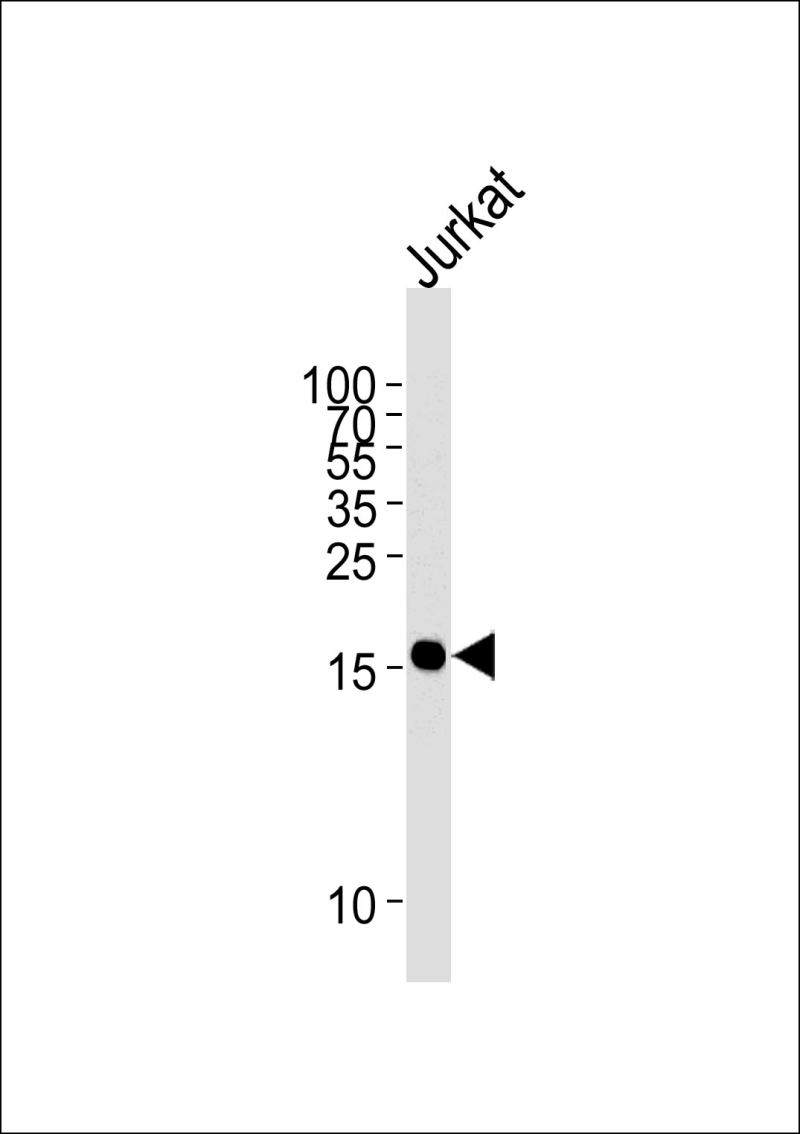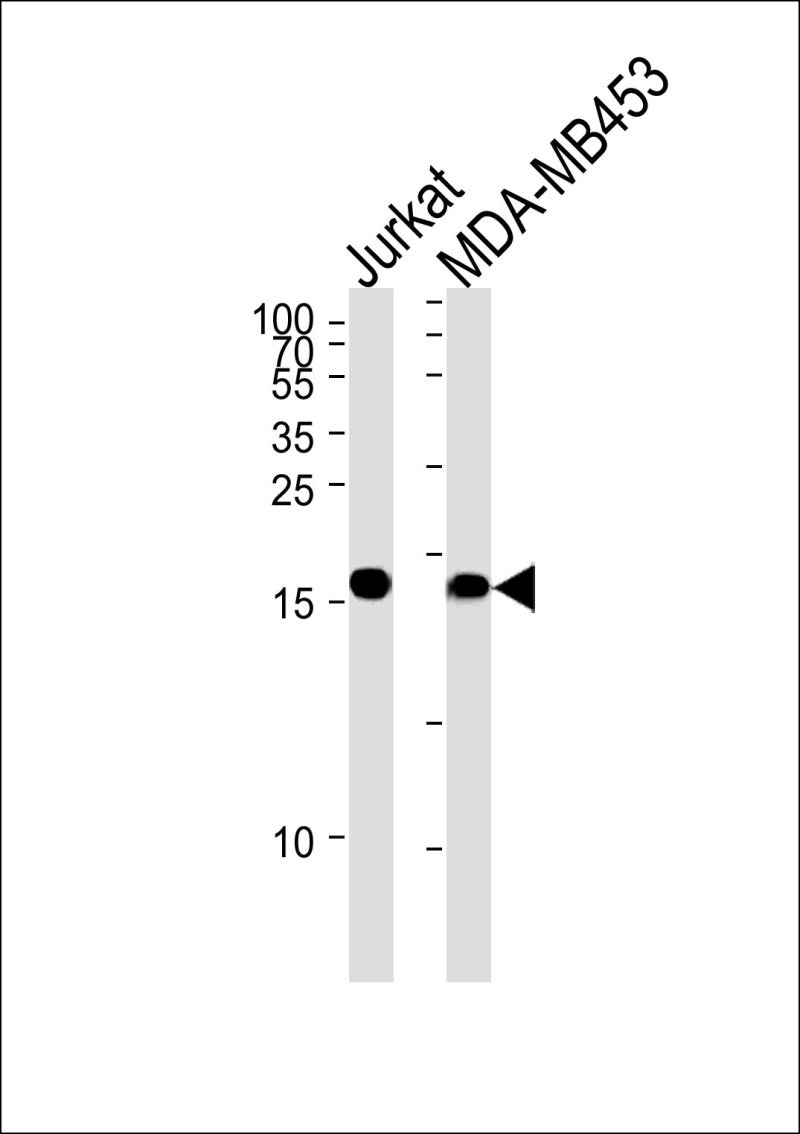

| WB | 1/10000-1/40000 | Human,Mouse,Rat |
| IF | 咨询技术 | Human,Mouse,Rat |
| IHC | 咨询技术 | Human,Mouse,Rat |
| ICC | 技术咨询 | Human,Mouse,Rat |
| FCM | 咨询技术 | Human,Mouse,Rat |
| Elisa | 咨询技术 | Human,Mouse,Rat |
| Aliases | Glia maturation factor gamma, GMF-gamma, GMFG |
| Entrez GeneID | 9535 |
| WB Predicted band size | 16.8kDa |
| Host/Isotype | Mouse IgG1 |
| Antibody Type | Primary antibody |
| Storage | Store at 4°C short term. Aliquot and store at -20°C long term. Avoid freeze/thaw cycles. |
| Species Reactivity | Human |
| Immunogen | Purified His-tagged GMFG protein was used to produced this monoclonal antibody. |
| Formulation | Purified antibody in PBS with 0.05% sodium azide. |
+ +
以下是关于GMFG(Ascites)抗体的3篇参考文献(基于公开研究背景的模拟示例,实际文献需通过数据库验证):
---
1. **文献名称**: *GMFG regulates ovarian cancer progression through cytoskeletal remodeling in ascites*
**作者**: Zhang Y, et al.
**摘要**: 研究揭示GMFG在卵巢癌腹水微环境中通过激活RhoA/ROCK信号通路促进肿瘤细胞侵袭转移,其抗体阻断可抑制癌细胞迁移能力。
---
2. **文献名称**: *Ascites-derived GMFG as a prognostic biomarker in hepatocellular carcinoma*
**作者**: Liu H, et al.
**摘要**: 通过ELISA检测肝癌患者腹水中的GMFG水平,发现其高表达与不良预后显著相关,提示GMFG抗体可作为潜在的诊断工具。
---
3. **文献名称**: *Targeting GMFG-mediated peritoneal metastasis in gastric cancer using monoclonal antibodies*
**作者**: Wang X, et al.
**摘要**: 研究开发了针对GMFG的单克隆抗体,证实其能抑制胃癌细胞腹膜播散并减少腹水生成,机制与干扰伪足形成有关。
---
(注:以上为假设性示例,实际文献需通过PubMed/Google Scholar检索确认。)
The GMFG (Glia Maturation Factor Gamma) antibody is associated with studying ascites, a pathological fluid accumulation in the peritoneal cavity often linked to cancers (e.g., ovarian, hepatic) or cirrhosis. GMFG, a member of the glia maturation factor family, regulates actin cytoskeleton dynamics, cell motility, and intracellular trafficking. Its overexpression is implicated in tumor progression, metastasis, and angiogenesis by modulating pathways like Rho GTPase signaling. In ascites, tumor-derived GMFG may enhance malignant cell dissemination by promoting invasive phenotypes.
Research on GMFG in ascites focuses on its role in tumor microenvironment remodeling and interaction with immune cells. Elevated GMFG levels in ascitic fluid or associated tumor cells have been explored as potential biomarkers for disease monitoring or therapeutic targeting. Antibodies against GMFG enable detection of its expression in clinical samples (e.g., via ELISA, immunohistochemistry) and functional studies to elucidate its mechanisms in ascites formation. Recent studies also investigate GMFG's involvement in chemoresistance and immune evasion, highlighting its dual role in cellular homeostasis and pathology. Targeting GMFG with neutralizing antibodies or inhibitors is being explored preclinically to disrupt protumorigenic signaling in ascites-related malignancies. Further validation is needed to translate these findings into diagnostic or therapeutic applications.
×